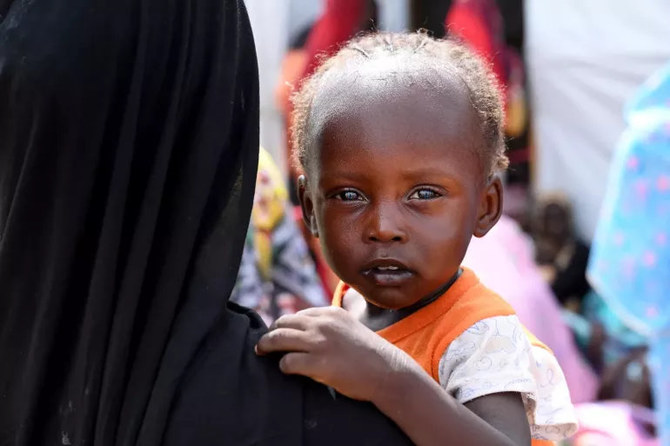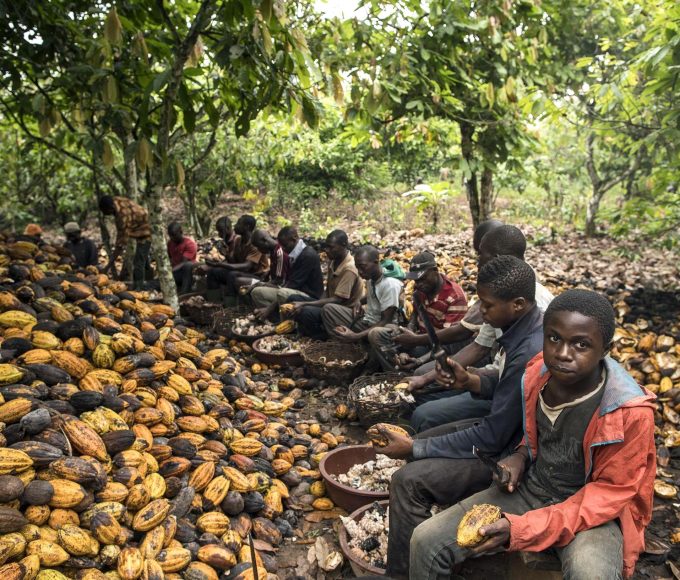
181 Million Children Suffer from Severe Food Poverty Worldwide – UNICEF

A recent report from UNICEF has revealed that globally, 181 million children under the age of five—accounting for one in four children—face severe food poverty during early childhood.
It said this issue is particularly prevalent in certain regions, with 65 per cent of affected children living in 20 specific countries, including 64 million in South Asia and 59 million in Sub-Saharan Africa.
The report, titled “Child Food Poverty: Nutrition Deprivation in Early Childhood,” pointed out that this crisis is exacerbated by global food and nutrition challenges, conflicts, and climate change.
It emphasised that while children in unstable regions and impoverished households are especially vulnerable, even those born into non-poor families can suffer from food poverty.
UNICEF warned that child food poverty contributes to child undernutrition and increases the risk of stunting, a condition where children are too short for their age due to chronic malnutrition.
Stunting not only impacts child mortality but also hampers physical and cognitive development, according to the World Health Organisation (WHO).
The National Food Consumption and Micronutrient Survey showed that 33% of Nigerian children under five suffer stunted growth.
UNICEF reported that Nigeria holds the second highest burden of stunted children globally, with 12 million out of the 35 million children under the age of five experiencing stunting due to malnutrition.
It added that about two million children suffer severe acute malnutrition, with only two out of every 10 affected children receiving treatment.
It identified several factors fueling this crisis, including inadequate food systems, families’ inability to afford nutritious foods, and parents’ insufficient adoption of positive child-feeding practices.
Calling for concerted efforts from governments, development agencies, donors, civil society organisations, and other stakeholders to address child food poverty effectively, UNICEF advocated for transforming food systems to prioritise nutritious options.
It also advocated leveraging health systems to provide essential nutrition services and activating social protection systems to address income poverty among vulnerable children and families.
Additionally, it emphasised the importance of strengthening data systems to monitor and reduce severe child food poverty globally.
About The Author
Related Articles
Gabon Suspends Social Media “Until Further Notice” Amid Rising Unrest
Gabon’s media regulator has announced the suspension of social media platforms nationwide,...
ByWest Africa WeeklyFebruary 18, 2026Côte d’Ivoire Feeds the World’s Chocolate Industry, But When Prices Shift, Cocoa Farmers Are Left With Rotting Harvests and No Income
Côte d’Ivoire produces nearly half of the world’s cocoa, a crop that...
ByWest Africa WeeklyFebruary 18, 2026Niger’s Tiani Visits Algeria in Bid to Strengthen Ties and Revive Key Projects
Abdourahamane Tiani, Niger’s head of state, is on an official visit to...
ByWest Africa WeeklyFebruary 18, 2026Niger’s Tiani Accuses France of Plotting Attack on Niamey Military Base
Niger’s head of state, General Abdourahamane Tiani, has renewed his accusations against...
ByWest Africa WeeklyFebruary 18, 2026











